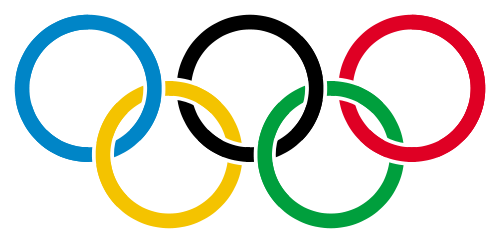What Exactly Is the Olympic Tradition?

Amidst the athletes, medals, podiums and pride, rapt Olympics viewers may vaguely detect evidence of values that motivate this international athletic movement.
Those viewers are onto something. There actually are things called Olympic values, and they are based on the vision of Pierre de Coubertin, the founder of the modern Olympic Games. These values continue to inspire the current Olympic tradition.
Coubertin considered respect, fair balance, pursuit of excellence, joy in effort, and balance between mind, body and will as the most essential Olympic values.
How the values came to be
Coubertin believed that sport, which enhances one's ability to think and concentrate, can and should play a formative role in human development on par with science, literature and the arts. The self-control, adherence to rules, and respect for others necessary in athletic pursuits, are also necessary off the playing field, whether in the classroom, at work or at home.
So when he set out to revive the Olympic Games in 1894, he wanted to do more than establish a modern sporting competition. He wanted to create an international movement that combined sport and education and positioned sport as a model for peace and harmony.
According to Coubertin, the Olympics should uphold a set of values that underlies all Olympic activities and can extend well beyond the playing field, thereby distinguishing the Olympic Games from all other sporting events.
Get the world’s most fascinating discoveries delivered straight to your inbox.
This holistic approach towards sports taken by Coubertin reflects that taken by the ancient Greeks. Sports were not only essential for a well-rounded education but also necessary to help pave the road towards greater harmony, understanding and peace in society. "Sport is Man's best way to achieve perfection in every respect," Coubertin said.
Without losing focus of the ultimate goal of perfection, Coubertin emphasized, in the words of Aerosmith's Steven Tyler, that life's a journey, not a destination. "The important thing in life is not the triumph, but the fight," said Coubertin. "The essential thing is not to have won, but to have fought well."
The values explained
An increasing emphasis on excellence has eclipsed the joy in effort, some say, that should be equally encouraged along with the other values. And the balance encouraged by Coubertin is an amorphous goal. So in an attempt to place the original values in a modern context, the International Olympic Committee recently reframed them under three core themes: excellence, friendship and respect.
- Excellence is not only about winning, but also making progress against personal goals, as reflected in the Olympic motto, "Citius — Altius — Fortius," which means "faster — higher — stronger." It is also a state of mind and a behavior that results from a healthy combination of a strong body, mind and will.
- Friendship encourages us to consider sport as a tool for mutual understanding. The Olympic Games inspire humanity to forge friendships in spite of political, economic, gender, racial and religious differences.
- Respect stands for fair play and for the fight against doping and any other unethical behavior. It encapsulates respect for self and one's body, for others, for the rules, for sport and for the environment.
These core values are brought to life through additional principles of the Olympic Movement, such as universality, sustainability and non-discrimination.
This is evident, according to Steven Maass in the Spring 2007 edition of Olympic Review (the official publication of the International Olympic Committee), through in the Olympic Movement's planning and managing of the games in an environment-friendly manner, promoting women in sport, constructing sports education buildings in developing countries, providing sports equipment to underprivileged areas, and caring for the poor in Africa, victims of war, and AIDS patients.
International Olympic Committee President Jacques Rogge emphasized the importance of the Olympic values in his November 2007 address to The Chicago Council on Global Affairs and The Economic Club of Chicago (while in Chicago for the 2007 AIBA World Boxing Championships):
"The Olympic Movement does its greatest work by instilling the values of sport into the hearts and minds of young people everywhere. Sport is a universal language. It teaches us how to strive for excellence in all that we do. How to live in friendship and peace. How to respect ourselves, each other and the rules. Excellence, friendship and respect are the fundamental Olympic values. They anchor all our activities."
This time around
The efforts made these days by the Beijing Olympic Games Organizing Committee, China's Education Ministry and the National Olympic Committee further Coubertin's legacy by reinforcing the link between sports and the betterment of humanity. These groups organized a number of training sessions to educate teachers on the Olympic values and help them incorporate Olympism into the classroom.
About 800,000 Chinese students received textbooks that introduce them to the history of the Olympics, various Olympic sports and the rules of play, Olympic symbols, and the international role of the Olympic Movement in pursuing international peace. They have also revamped their schools' physical education programs and are encouraging youth to develop become more athletically involved outside of school. And their "Heart-to-Heart" initiative connects 203 schools near Beijing with athletes from various countries to encourage the values of international friendship and respect.
The four goals of the Olympic Charter, which have become known as "Olympism," reflect Coubertin's views of how sport and education should co-exist:
- Develop physically and morally.
- Build a more peaceful world by educating the young in a spirit of understanding.
- Establish international goodwill by spreading the Olympic principles.
- Assemble athletes from around the world every four years.
Follow Life's Little Mysteries on Twitter @llmysteries. We're also on Facebook & Google+.
 Live Science Plus
Live Science Plus





